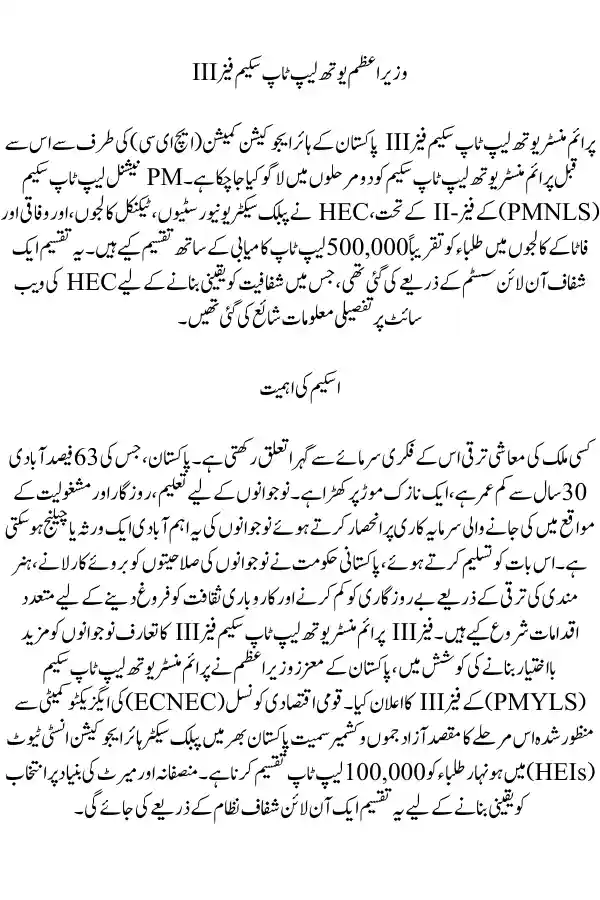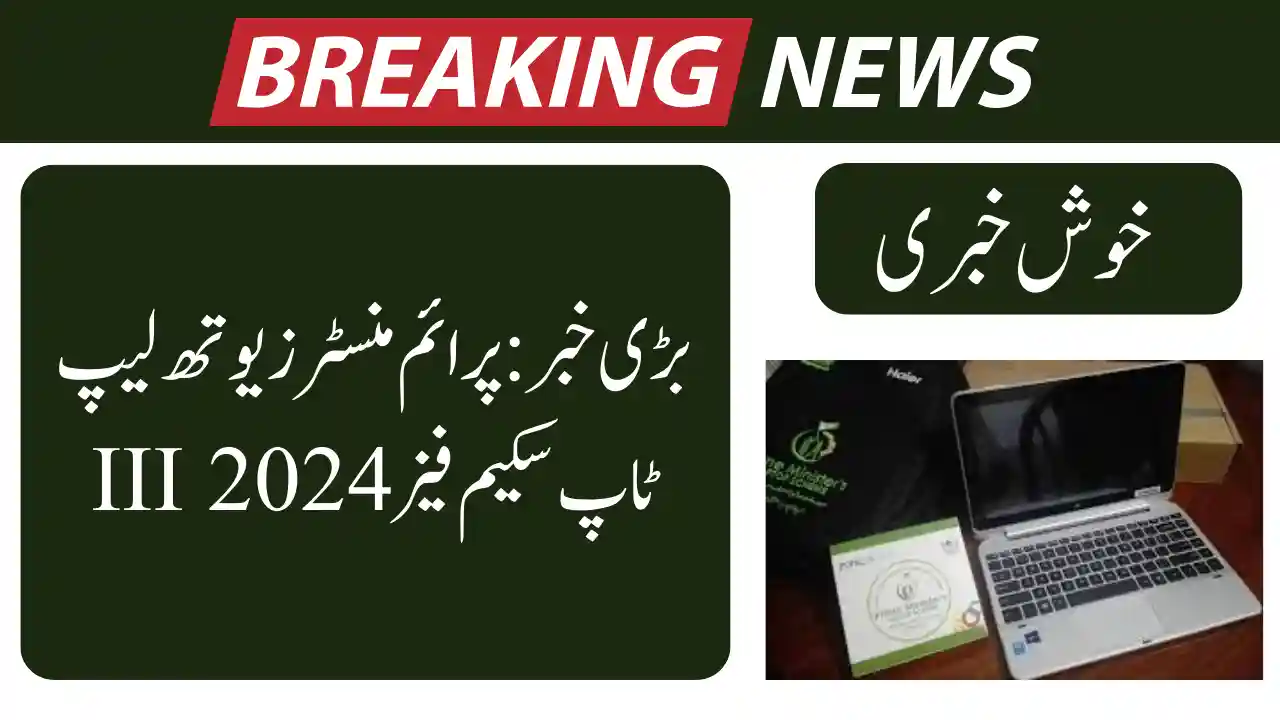Prime Ministers Youth Laptop Scheme Phase-III
Prime Minister’s Youth Laptop Scheme Phase-III The Prime Minister’s Youth Laptop Scheme has previously been implemented in two phases by the Higher Education Commission (HEC) of Pakistan. Under Phase-II of the PM National Laptop Scheme (PMNLS), HEC successfully distributed approximately 500,000 laptops to students in public sector universities, technical colleges, and Federal and FATA colleges. This distribution was facilitated through a transparent online system, with detailed information published on the HEC website to ensure transparency.Also Read:Applying for Kisan Card Online in Pakistan
Importance of the Scheme
A nation’s economic development is closely tied to its intellectual capital. Pakistan, with around 63% of its population under the age of 30, stands at a critical juncture. This significant youth population can either be a boon or a challenge, depending on the investments made in education, employment, and engagement opportunities for the youth. Recognizing this, the Pakistani government has launched several initiatives aimed at harnessing the potential of young people, reducing unemployment through skill development, and fostering an entrepreneurial culture.

Introduction to Phase-III
Prime Ministers Youth Laptop Scheme Phase-III In a bid to further empower the youth, the Honorable Prime Minister of Pakistan announced Phase-III of the Prime Minister’s Youth Laptop Scheme (PMYLS) . This phase, approved by the Executive Committee of the National Economic Council (ECNEC), aims to distribute 100,000 laptops to meritorious students in public sector Higher Education Institutes (HEIs) across Pakistan, including Azad Jammu & Kashmir. The distribution will be conducted through an online transparent system to ensure fairness and merit-based selection.Also Read:11 Cities in Punjab to Get Free Public Wi-Fi
Quick Details
| Aspect | Details |
|---|---|
| Scheme Name | Prime Minister’s Youth Laptop Scheme |
| Phase | III |
| Executing Agency | Higher Education Commission (HEC) |
| Target Audience | Students in public sector HEIs |
| Coverage Area | Pakistan and Azad Jammu & Kashmir |
| Number of Laptops to be Distributed | 100,000 |
| Method of Distribution | Online transparent system |
Frequently Asked Questions (FAQs)
What is the Prime Minister’s Youth Laptop Scheme Phase-III?
Prime Ministers Youth Laptop Scheme Phase-III Phase-III of the Prime Minister’s Youth Laptop Scheme is an initiative by the Government of Pakistan to distribute 100,000 laptops to talented students studying in public sector Higher Education Institutes (HEIs) across the country and Azad Jammu & Kashmir.
Who is eligible for the laptop scheme?
Prime Ministers Youth Laptop Scheme Phase-III Students studying in public sector HEIs across Pakistan and Azad Jammu & Kashmir are eligible for the scheme. Selection is based on merit, determined through an online transparent system.Also Read: The most recent withdrawal method for Benazir Kafalat 12500 is Jazzcash 2024
How many laptops will be distributed under this phase?
Under Phase-III of the scheme, a total of 100,000 laptops will be distributed to eligible students.
How will the distribution process ensure transparency?
The distribution process will utilize an online transparent system, similar to the previous phases, to ensure that laptops are awarded to students based on merit.
What was the outcome of the previous phases?
In the previous phases, particularly Phase-II, around 500,000 laptops were successfully distributed by the HEC through a transparent system. The process and information were made publicly available on the HEC website.
Final Word
The Prime Minister’s Youth Laptop Scheme Phase-III is a strategic initiative by the Pakistani government to invest in the intellectual capital of the nation. By providing laptops to talented students, the government aims to enhance educational opportunities, reduce unemployment, and foster a culture of entrepreneurship. This phase, with its commitment to transparency and meritocracy, is a significant step towards empowering the youth and ensuring their meaningful engagement in the country’s development.
